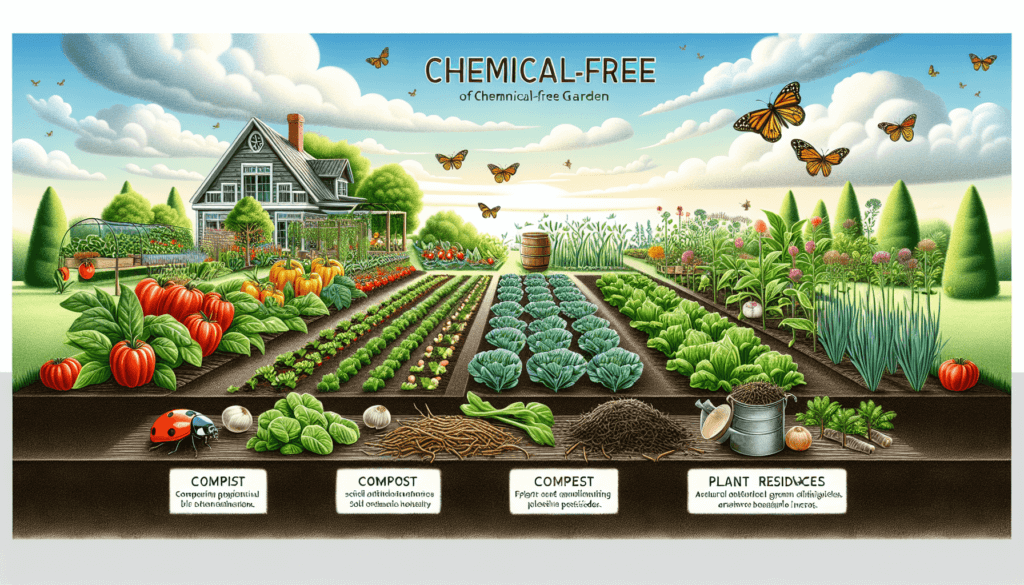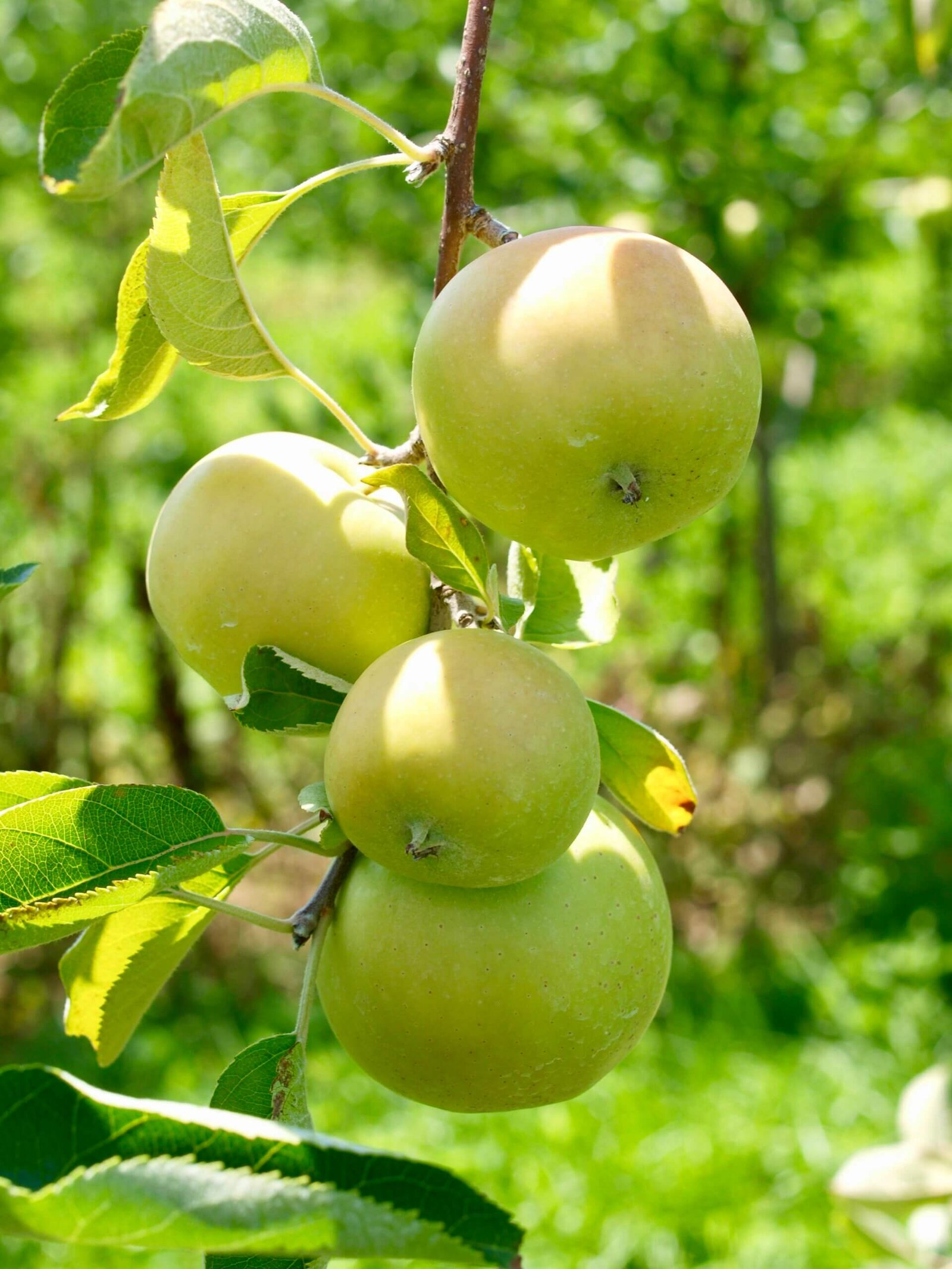Are you tired of relying on harmful chemicals to maintain your garden? Look no further! In this article, you will discover the key steps to creating a chemical-free garden that is not only safe for your family and the environment but also thriving with lush, vibrant plants. Say goodbye to toxic pesticides and herbicides and say hello to a garden that flourishes naturally. From organic fertilizers to companion planting techniques, we will provide you with valuable tips and insights to help you transform your garden into a chemical-free oasis. Get ready to embark on a journey towards a healthier and more sustainable gardening experience.
Choosing Organic Seeds and Plants
Understanding the importance of organic seeds and plants
When starting a chemical-free garden, it is crucial to choose organic seeds and plants. Organic seeds and plants are grown without the use of synthetic pesticides, herbicides, or fertilizers, which means they are free from harmful chemicals that can linger in the soil and affect the health of your garden. By choosing organic, you are promoting biodiversity, protecting the environment, and ensuring the health of your plants and the food they produce.
Researching and sourcing organic seeds and plants
To find organic seeds and plants, it’s essential to do some research and find reputable sources. Look for certified organic seed companies or nurseries that specialize in organic plants. You can also explore local farmer’s markets or community-supported agriculture programs (CSAs) to find organic options. By sourcing your seeds and plants from trusted sources, you can be confident that they have been grown using organic methods and have not been treated with harmful chemicals.
Avoiding genetically modified organisms (GMOs)
In addition to choosing organic seeds and plants, it is essential to avoid genetically modified organisms (GMOs) in your garden. GMOs are plants or seeds that have been genetically modified in a laboratory to exhibit certain traits. These genetically engineered plants can have unpredictable effects on the environment and potentially harm beneficial insects and pollinators. By opting for organic seeds and plants, you can ensure that you are not inadvertently supporting the use of GMOs in agriculture.
Preparing the Soil Naturally
Testing and analyzing the soil
Before starting your chemical-free garden, it’s important to test and analyze your soil. Soil testing can provide valuable information about the composition and pH of your soil, allowing you to make informed decisions about which crops will thrive in your garden. You can purchase soil testing kits from garden centers or send samples to a laboratory for professional analysis. Once you understand your soil’s characteristics, you can make necessary adjustments to create optimal growing conditions.
Composting to improve soil fertility
One of the most effective ways to improve soil fertility naturally is through composting. Composting involves decomposing organic matter, such as kitchen scraps, yard waste, and leaves, to create nutrient-rich soil amendment. Compost is high in beneficial microorganisms and provides essential nutrients for plants. By incorporating compost into your soil, you can increase its fertility, improve its structure, and promote healthy plant growth.
Using natural soil amendments like compost tea and worm castings
In addition to traditional compost, there are other natural soil amendments that can enhance soil health. Compost tea, for example, is a liquid fertilizer made by steeping compost in water. It is rich in beneficial microorganisms and nutrients that can be absorbed directly by plant roots. Another popular soil amendment is worm castings, which are the waste products of earthworms. Worm castings are highly nutritious and can improve soil structure and fertility. Incorporating these natural soil amendments can provide your plants with the necessary nutrients for optimal growth.
Adding organic matter to enhance soil structure
To enhance the structure of your soil, it is crucial to add organic matter. Organic matter improves soil’s ability to retain moisture, enhances drainage, and promotes aeration. You can add organic matter by incorporating compost, leaf litter, or aged manure into the soil. This will not only improve soil structure but also provide a food source for beneficial soil organisms. By enhancing soil structure, you create a healthy environment for plant roots to grow and flourish.
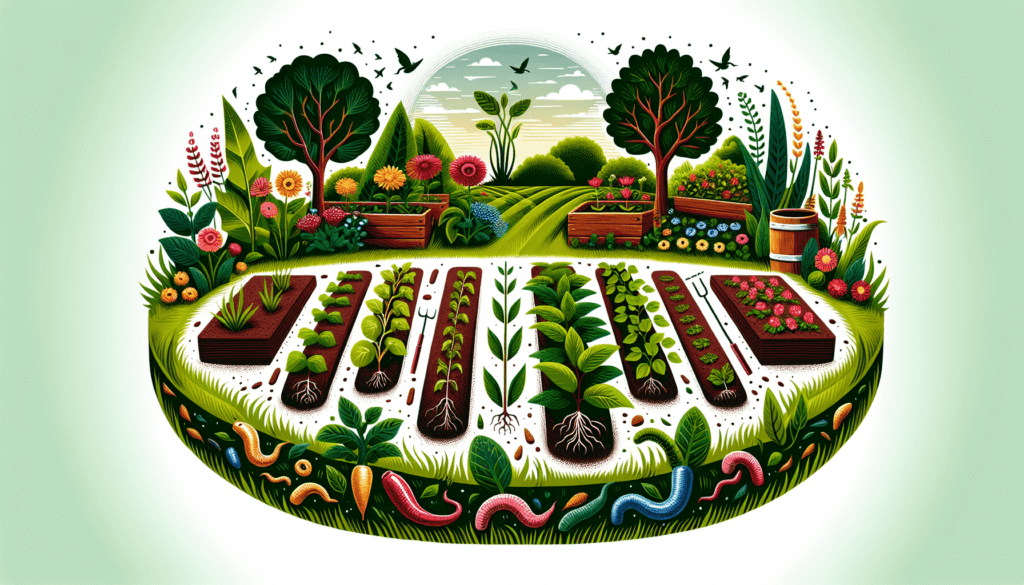
Implementing Companion Planting
Understanding the concept of companion planting
Companion planting is the practice of planting different crops together in a way that benefits each other. It involves selecting plant combinations that have symbiotic relationships, where one plant helps protect or enhance the growth of another. For example, planting aromatic herbs next to vegetables can help repel pests or attract beneficial insects. Understanding the concept of companion planting allows you to create a harmonious garden ecosystem where plants support and protect each other.
Researching beneficial plant combinations
To effectively implement companion planting in your chemical-free garden, it’s important to research and understand the beneficial plant combinations. Certain plants have natural pest-repellent properties or attract pollinators, which can benefit neighboring plants. For example, planting marigolds near tomatoes can help repel nematodes, while planting sunflowers near beans can attract pollinators. By researching and selecting the right plant combinations, you can create a garden that maximizes the benefits of companion planting.
Creating a companion planting layout in the garden
To implement companion planting, it’s advisable to create a companion planting layout or plan for your garden. This involves mapping out the placement of different crops to maximize their mutually beneficial relationships. For example, taller plants can provide shade or wind protection for more delicate plants, while plants with strong scents can help mask the scent of attract pests. By strategically arranging your plants, you can create a harmonious garden where each crop supports and enhances the growth of others.
Using Natural Pest Control Methods
Identifying common garden pests
In a chemical-free garden, it’s important to be able to identify common garden pests. By recognizing pests early, you can take appropriate action to minimize their impact on your plants. Some common garden pests include aphids, slugs, snails, caterpillars, and mites. Regularly inspecting your plants and taking note of any damage or signs of pests can help you identify the specific pests affecting your garden.
Encouraging beneficial insects and predators
One of the most effective natural pest control methods is to encourage beneficial insects and predators in your garden. Ladybugs, lacewings, and praying mantises are examples of beneficial insects that feed on common garden pests. Planting flowers that attract these insects, such as yarrow or dill, can help create a habitat that attracts and supports beneficial insects. Additionally, providing water sources and shelter, such as ornamental grasses or insect hotels, can further encourage their presence in your garden.
Creating barriers and physical traps
Creating physical barriers and traps can help protect your plants from pests. For example, placing floating row covers over vulnerable plants can prevent insect infestation. Installing physical barriers, such as fences or netting, can deter animals like deer or rabbits from accessing your garden. Additionally, using sticky traps or beer traps can help catch and control pests like slugs and snails. By implementing these physical barriers and traps, you can reduce the damage caused by pests.
Using organic pest control products like neem oil and insecticidal soaps
In certain situations, where pest populations are particularly high or other methods have proven ineffective, organic pest control products can be used as a last resort. Neem oil, derived from the neem tree, is a natural insecticide that can be effective against a wide range of garden pests. Insecticidal soaps, made from potassium salt of fatty acids, are another option that can control pests like aphids, spider mites, and whiteflies. When using these organic pest control products, it’s important to follow the instructions carefully and apply them selectively to minimize their impact on beneficial insects and pollinators.
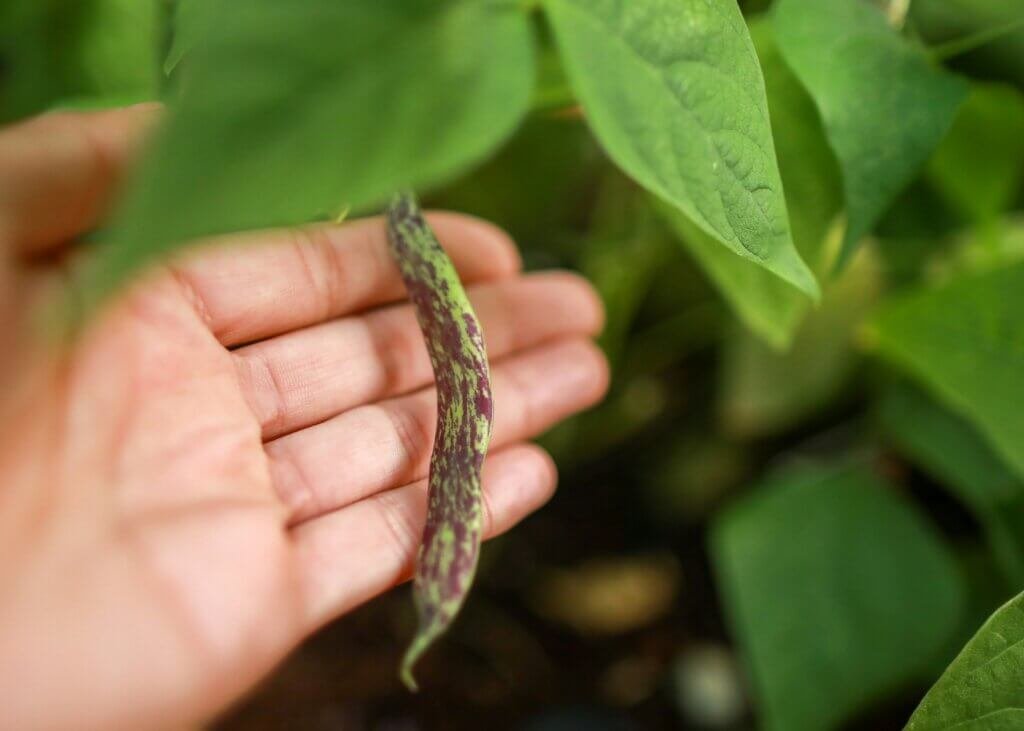
Attracting Pollinators Naturally
Understanding the importance of pollinators
Pollinators, such as bees, butterflies, and hummingbirds, play a vital role in the garden ecosystem. They are responsible for transferring pollen from one flower to another, enabling plants to produce fruits and seeds. Without pollinators, many plants would not be able to reproduce, which would have a significant impact on biodiversity and food production. Understanding the importance of pollinators and their role in the garden can help you prioritize their presence and well-being.
Planting a diversity of flowering plants
One of the most effective ways to attract pollinators naturally is to plant a diverse selection of flowering plants. Different pollinators are attracted to different types of flowers, so having a variety of shapes, colors, and scents can help attract and support a wide range of pollinators. Choose plants with different blooming times to ensure a continuous supply of nectar and pollen throughout the growing season. By providing abundant food sources, you can create an inviting and supportive environment for pollinators.
Providing nesting habitats and water sources
In addition to food sources, pollinators also require suitable nesting habitats and water sources. Some pollinators, like solitary bees, require nesting sites, such as hollow stems or holes in wood. Creating a pollinator-friendly garden by leaving areas of undisturbed soil or providing bee houses can provide nesting opportunities for these beneficial insects. Additionally, providing a shallow dish of water or a bubbling fountain can serve as a water source for butterflies and bees. By ensuring these essential elements are present in your garden, you can encourage pollinators to visit and thrive.
Avoiding chemical pesticides harmful to pollinators
To truly create a chemical-free garden that supports pollinators, it’s important to avoid the use of chemical pesticides that can harm them. Many conventional pesticides are toxic to bees and other pollinators, and even small amounts can have detrimental effects. By opting for organic pest control methods and avoiding chemical pesticides, you can protect the health and well-being of pollinators in your garden.
Watering Wisely with Chemical-Free Techniques
Collecting rainwater for irrigation
Water is a precious resource, and using it wisely is crucial, especially in a chemical-free garden. One way to minimize water usage is by collecting rainwater for irrigation. Installing rain barrels or storage tanks to collect rainwater from downspouts can provide a sustainable source of water for your garden. Rainwater is free from chemicals found in tap water, making it an ideal choice for watering your plants.
Using drip irrigation systems
Another efficient watering technique is the use of drip irrigation systems. Drip irrigation delivers water directly to the root zone of plants, minimizing water waste through evaporation and runoff. This targeted watering method also reduces the risk of fungal diseases by keeping foliage dry. Drip irrigation systems can be easily installed and adjusted to meet the specific needs of your plants, making them a practical and environmentally friendly choice for watering your garden.
Monitoring soil moisture levels
To ensure optimal plant growth and water conservation, it’s important to monitor soil moisture levels. By regularly checking the moisture content of your soil, you can water your plants only when necessary and avoid overwatering. There are various tools available, such as soil moisture meters or simple finger tests, that can help you determine when it’s time to water. By being mindful of soil moisture levels, you can prevent water waste and promote healthy plant growth.
Applying mulch to retain soil moisture
Mulching is a technique that involves covering the soil surface with a layer of material, such as wood chips, straw, or leaves. Applying mulch has several benefits, one of which is retaining soil moisture. Mulch helps reduce evaporation and acts as a barrier, preventing water from escaping the soil. It also helps regulate soil temperature, suppresses weed growth, and improves soil fertility as it breaks down over time. By applying mulch in your chemical-free garden, you can conserve water and create a healthier growing environment for your plants.
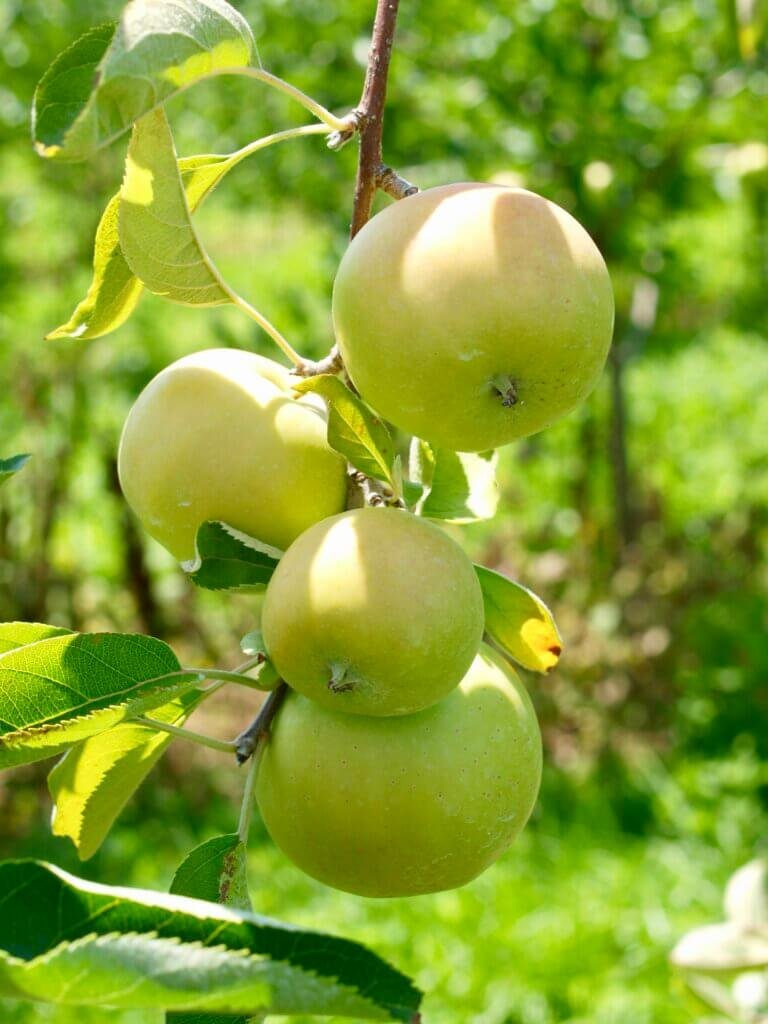
Managing Weeds Naturally
Preventing weed growth through proper garden planning
To effectively manage weeds in a chemical-free garden, it’s important to prevent their growth through proper garden planning. Start by designing your garden layout with thoughtful spacing and arrangement to minimize bare soil areas where weeds can germinate. Use ground covers or planting crops densely to shade out weed seedlings. Additionally, implementing mulching or covering the soil with landscape fabric can help smother weed growth. By being proactive and mindful in your garden planning, you can reduce the need for excessive weed management.
Hand-pulling or using hand tools to remove weeds
When weeds do appear in your garden, it’s important to remove them in a way that minimizes their spread and impact. Hand-pulling weeds or using hand tools, such as hoes or trowels, can be effective for small-scale weed management. Be sure to remove weeds before they go to seed and discard them in a way that prevents reestablishment, such as in a compost pile or by bagging and disposing of them off-site. Regularly monitoring your garden and addressing weed growth promptly can help keep weed populations in check.
Mulching to suppress weed growth
Mulching is not only beneficial for water conservation but also for weed suppression. Applying a layer of organic mulch, such as straw or wood chips, can suppress weed germination by blocking sunlight and inhibiting weed growth. Mulch also acts as a physical barrier, preventing weed seeds from making contact with the soil. By consistently applying mulch around your plants or in between garden rows, you can significantly reduce weed growth and minimize the need for manual weed control.
Solarization to control persistent weeds
For persistent or problematic weeds, solarization can be an effective natural weed control method. Solarization involves covering the soil with clear plastic to trap heat from the sun and raise soil temperatures to levels that kill weed seeds and roots. This technique is particularly useful for controlling weeds in areas that receive direct sunlight. To solarize an area, cover the soil with clear plastic, ensuring a tight seal around the edges. Leave the plastic in place for several weeks during the hottest months of the year. Solarization can be a time-consuming method, but it can provide long-lasting weed control without the use of chemicals.
Promoting Soil Health through Crop Rotation
Understanding the benefits of crop rotation
Crop rotation is a practice that involves systematically changing the types of crops grown in specific areas of the garden from year to year. This rotation helps improve soil health, reduce pest and disease pressure, and optimize nutrient utilization. Different crops have different nutrient requirements and interact differently with soil microorganisms. By rotating crops, you can minimize the buildup of pests and diseases and ensure that soil nutrients are replenished in a balanced way.
Planning and implementing crop rotation schedules
To successfully implement crop rotation in your chemical-free garden, planning and organization are key. Start by dividing your garden into different sections or beds and assigning each section to a specific crop group. Crop groups are divided based on their plant family, as pests and diseases tend to affect plants within the same family. Develop a rotation schedule that alternates crop families each year, ensuring that plants from the same family do not grow in the same section of the garden consecutively. By following a well-designed crop rotation schedule, you can maintain soil health and prevent the buildup of pests and diseases.
Avoiding plant diseases and pests through crop rotation
One of the key benefits of crop rotation is that it helps minimize the occurrence of plant diseases and pests. Certain diseases and pests are specific to certain plant families, and by rotating crops, you disrupt their life cycles and reduce their ability to establish and cause damage. For example, rotating tomatoes with unrelated crops like beans or lettuce can help prevent the buildup of soil-borne diseases that commonly affect tomatoes. By incorporating crop rotation into your gardening practices, you can naturally manage pests and diseases and maintain a healthy garden ecosystem.
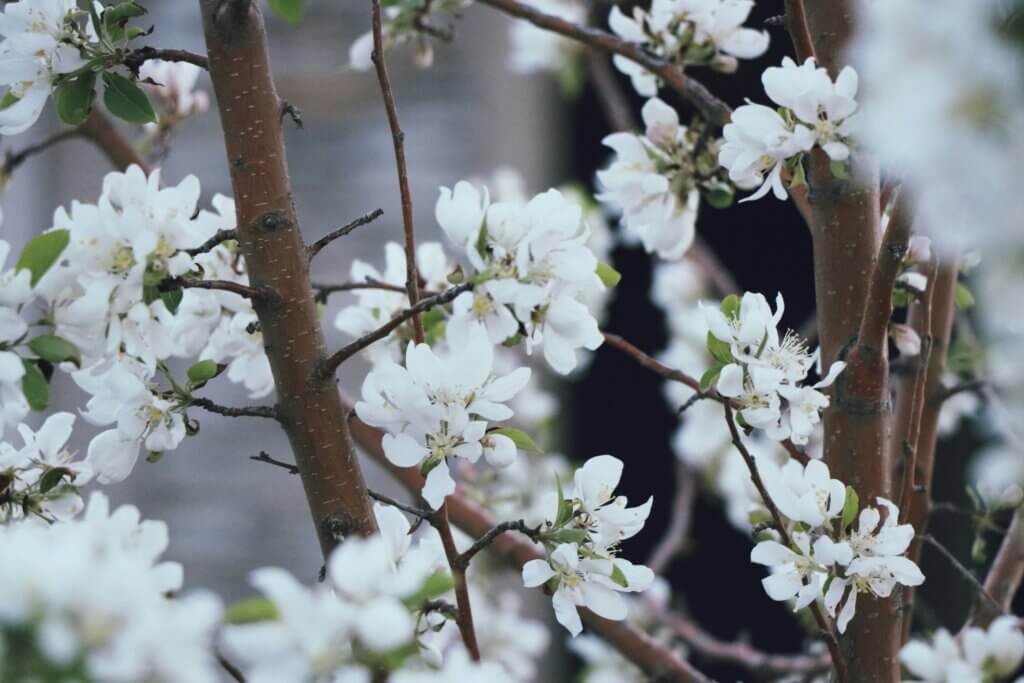
Conserving and Recycling Resources
Implementing efficient watering practices
Conserving water is an essential aspect of creating a chemical-free garden. Implementing efficient watering practices can help reduce water waste and ensure that water is used effectively by your plants. In addition to collecting rainwater and using drip irrigation, watering your plants in the early morning or late evening can minimize evaporation. Directing water to the base of the plants rather than overhead watering can also reduce water loss. Being mindful of your watering practices and using water efficiently can make a significant difference in conserving this precious resource.
Using compost and organic matter to conserve moisture
To conserve moisture in your soil, incorporating compost and organic matter is key. Organic matter acts like a sponge, absorbing and retaining moisture, making it readily available for plant uptake. By adding compost and organic matter to your soil, you improve its water-holding capacity and reduce the need for frequent irrigation. Additionally, mulching your garden beds with organic mulch can further conserve soil moisture by reducing evaporation. By utilizing compost and organic matter, you can promote a healthy soil structure that retains moisture and supports healthy plant growth.
Reusing plant waste as mulch or compost
In a chemical-free garden, reusing plant waste is an effective way to reduce waste and improve soil health. Rather than discarding plant trimmings, leaves, or grass clippings, consider reusing them as mulch or incorporating them into a compost pile. Mulching with plant waste not only conserves soil moisture but also recycles valuable nutrients back into the soil. Alternatively, composting plant waste creates a nutrient-rich soil amendment that can be used to improve soil fertility. By reusing plant waste, you eliminate the need for synthetic fertilizers and contribute to a sustainable garden ecosystem.
Recycling gardening materials and containers
To create a truly sustainable and chemical-free garden, it’s important to incorporate recycling practices into your garden maintenance. Recycling gardening materials and containers not only reduces waste sent to landfills but also conserves resources and saves money. Instead of buying new pots or planters, consider reusing containers from previous seasons. Repurpose materials, such as old pallets or bricks, to create garden structures or raised beds. When tools or equipment become worn or broken, explore options for repair before replacing them. By adopting a mindset of recycling and reusing, you can contribute to a more sustainable gardening practice.
Educating Yourself and Sharing Knowledge
Staying updated on organic gardening practices
As a chemical-free gardener, it’s important to stay updated on the latest organic gardening practices and techniques. Organic gardening is a continuously evolving field, and new research and innovations can help you improve the health and productivity of your garden. Stay informed by reading books, attending workshops, or following trusted websites or blogs dedicated to organic gardening. By staying updated, you can apply new knowledge and techniques to your own garden, enhancing your gardening skills and results.
Joining local gardening groups or forums
Connecting with fellow gardeners through local gardening groups or online forums can be a great way to expand your knowledge and learn from others’ experiences. Joining a local gardening club or participating in community gardening projects can provide opportunities for hands-on learning and knowledge sharing. Online gardening forums and social media groups also offer platforms for asking questions, sharing tips, and engaging in discussions with gardeners from all over the world. By joining these communities, you can learn from experienced gardeners while also contributing your own insights and experiences.
Sharing experiences and tips with fellow gardeners
Sharing your experiences and tips with fellow gardeners is not only a great way to contribute to the gardening community but also to deepen your own understanding of organic gardening practices. Whether through informal conversations, blog posts, or social media, sharing your successes, challenges, and lessons learned can inspire and educate others. By openly sharing your knowledge and experiences, you help create a supportive and inclusive gardening community that values sustainable and chemical-free practices.
Promoting chemical-free gardening in the community
As a chemical-free gardener, you have the opportunity to promote and advocate for this sustainable gardening practice in your community. Share your knowledge and experiences with friends, family, neighbors, and local organizations to encourage others to adopt chemical-free methods. Consider hosting workshops or giving presentations to share the benefits and techniques of organic gardening. Getting involved in community gardens or volunteering at schools or community centers can also provide opportunities to educate and inspire others. By actively promoting chemical-free gardening, you contribute to a healthier environment, promote sustainable practices, and encourage others to reconnect with nature.
